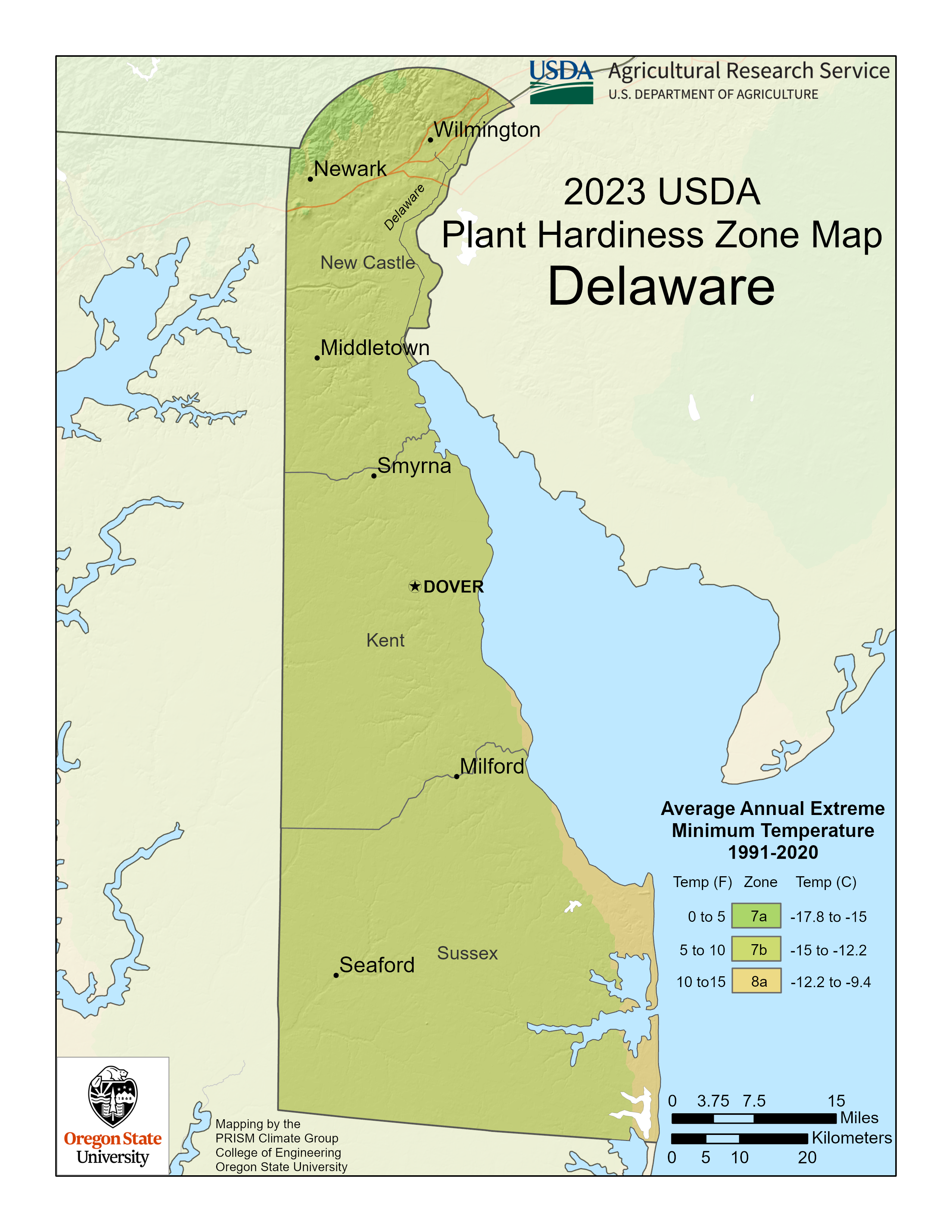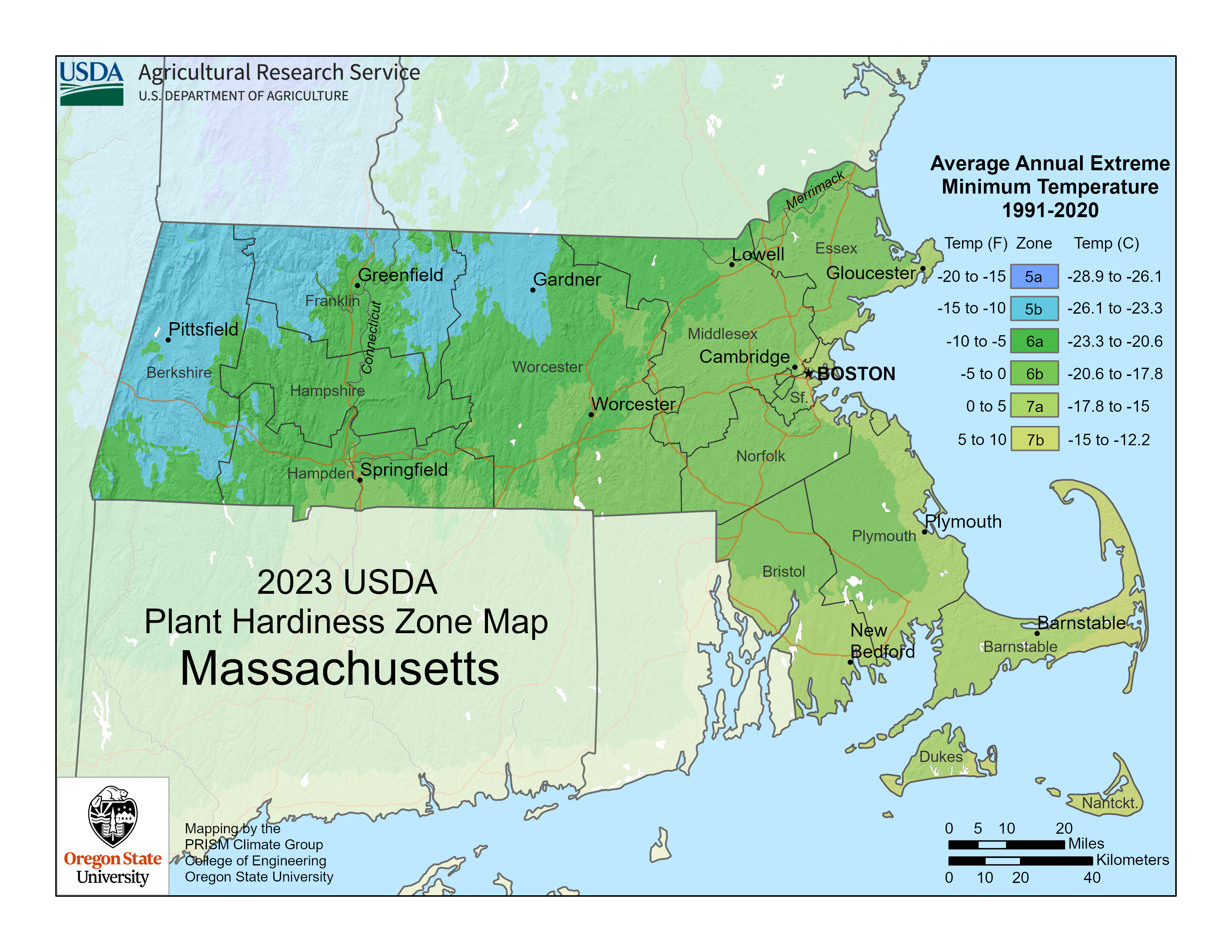When it comes to creating a compost pile, many people will have different opinions on what things are and are not safe to add.
One of the biggest debates is whether or not you can compost pasta.
You can compost pasta. It is totally fine for you to add pasta to your compost pile, dry or cooked, as long as it is added to the soil and mixed up in the right way, and it’s not accessible for animals to get to.
For information regarding composting pasta, the best ways to do it, and what other items should and should not go into your compost bin, continuing reading this article.
Table of Contents
Is it Okay to Compost Pasta?
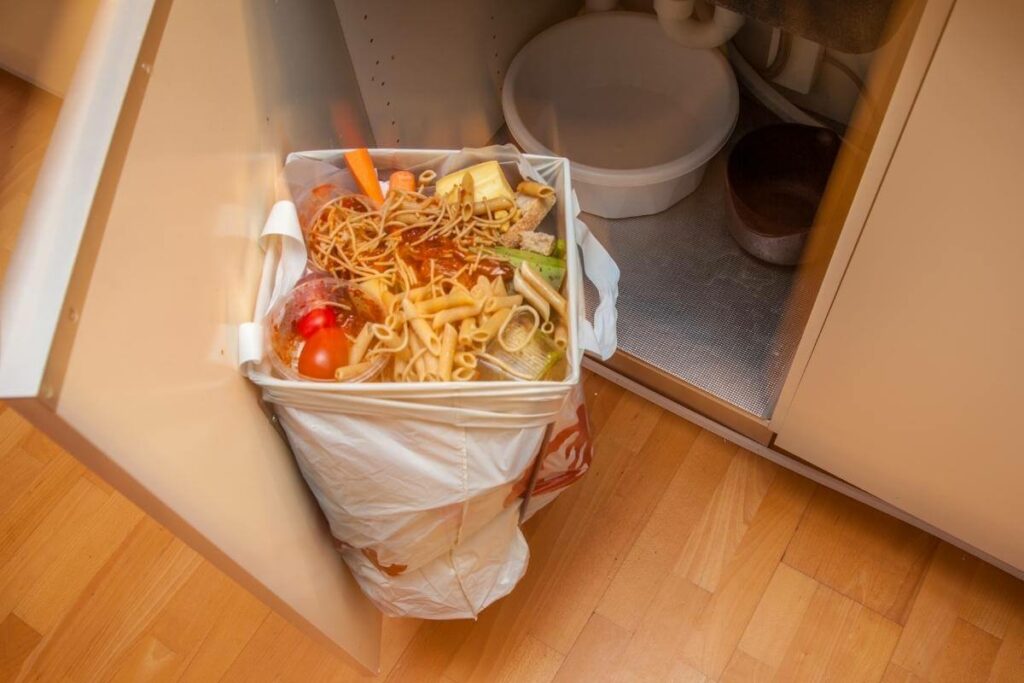
The answer to this question is subject to change depending on who you ask.
However, in general, yes, it is okay to compost pasta. Not only can you, but you should.
There are multiple reasons we feel this way.
Balance Out Moisture
Most of the items you frequently add to your compost piles will be wet, slimy, gooey foods.
Throwing in some pasta now and again is going to balance this moisture out.
Keeps it From Being Wasted
One hundred eight billion pounds of food is going to waste each and every year.
Putting your un-eaten or unwanted food items into a compost pile will at least allow it to serve a positive purpose on this planet and keeps them out of local landfills.
Beefs Up the Microorganisms
Grains, such as pasta, add a source of nitrogen-rich materials into your compost, providing the microorganisms all the protein they need to keep moving through, breaking up all of your leftovers.
Can You Compost Both Cooked and Uncooked Pasta?
Against this can be a personal choice, and the answer will depend on the person you are asking, but, for the most part, both cooked and uncooked pasta is perfectly fine for your compost pile.
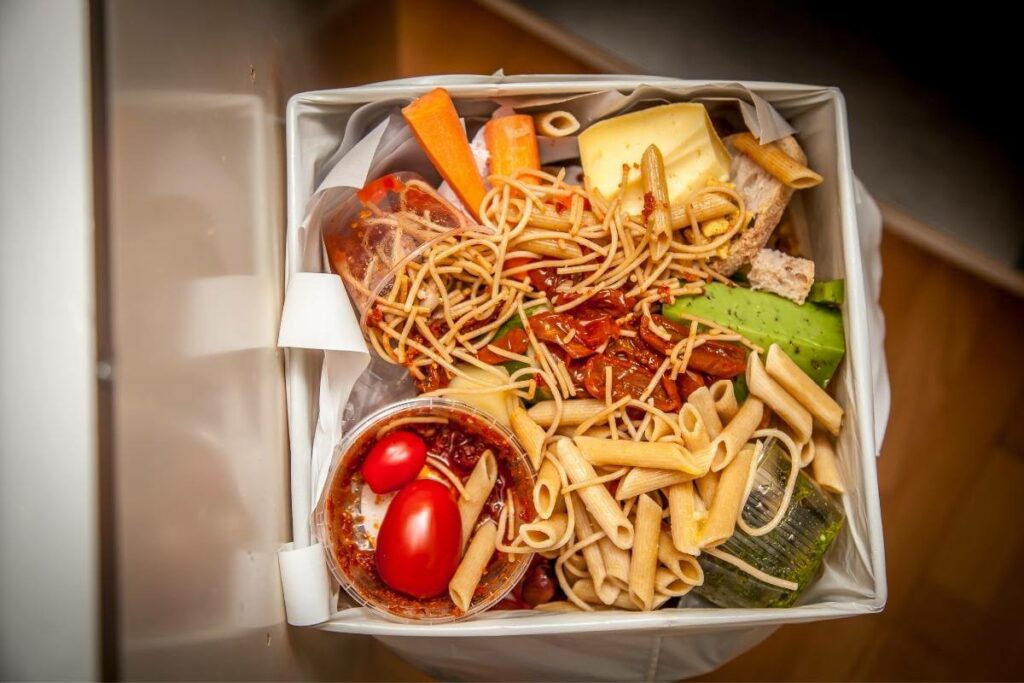
Many people will state that they prefer only un-cooked pasta because cooked pasta is usually covered in sauce, meat, cheese, etc.
These are things most people want to avoid placing in their compost bins.
Issues Associated with Composting Pasta
When discussing composting in a group of people, at least one will tell you that you should not be placing pasta into your pile.
Here are a few reasons people choose not to compost grains.
Attracts Rodents
The biggest reason people will advise against composting your leftovers from spaghetti night is due to the possibility of rodents and other small animals catching a whiff.
Potential Problem: Once these creatures pick up on the scent, you are going to have a big problem on your hands trying to keep them out.
Bad Bacteria
Another big problem associated with compositing pasta is complications with the ingredients other than the noodles themselves.
When you start to add things like meat and dairy to a compost bin, you may wind up with a smelly area full of harmful bacteria and a whole lot of mess.
Bug Problems
Another thing to consider when composting your leftover pasta is an infestation.
If you do not break up your pieces enough or grind them up into the soil well enough, you could be looking at a big pest problem.
Tips for Properly Composting Pasta
There are a few things to consider when you are preparing to throw any type of grain into a composting container.
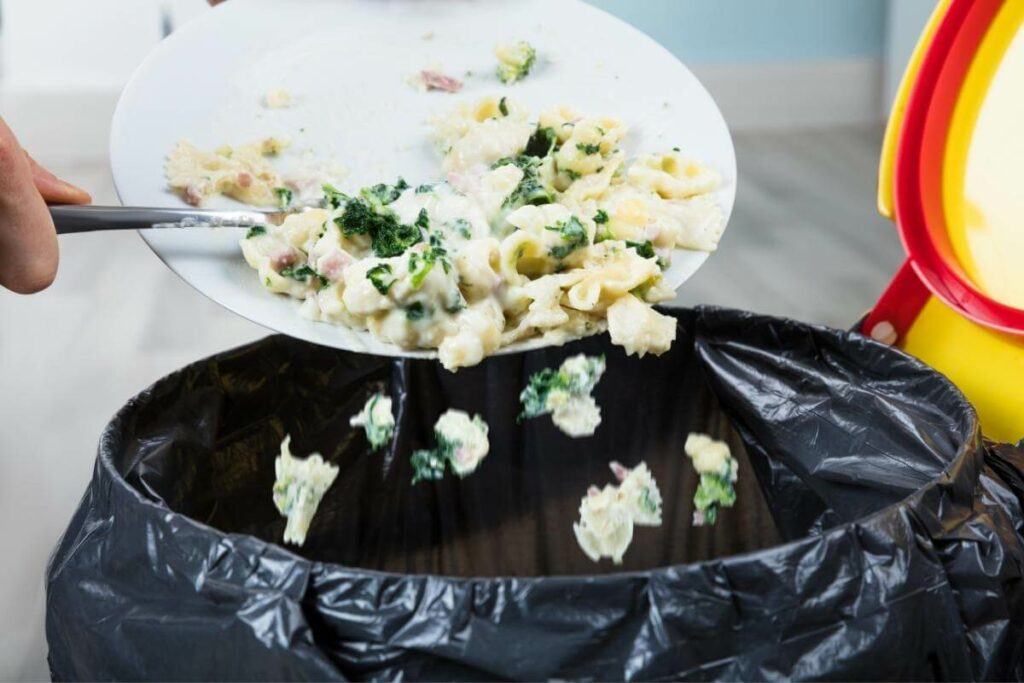
Doing these things will help prevent problematic situations from occurring and will allow your bin to stay critter-free.
Keep a Lid on Your Compost Bin
The best way to keep little critters away is by keeping a tight locking lid on the bin at all times.
This will drown out the smell and also make it impossible for these animals to get into your compost and create a mess.
Wash off Your Pasta
RInsing your un-eating pasta is ideal before adding it to the bin unless you are a strict spaghetti and sauce kind of person.
Keeping meat and dairy products to the bare minimum is ideal and will make a huge difference.
Do Not Over Do it
There is nothing wrong with compositing pasta.
However, putting a pound of it in your pile at once isn’t ideal.
Be Moderate: Trying to keep your addition small and mixed in will help keep the scent down and animals out.
Cover the Pasta with Soil
Aside from keeping grains limited in your pile, you should also keep them towards the middle of it as well.
Cover these tastier items with things like soil to make them a lot less appealing and smelly.
Mix Your Pile Up Well
Rotating your pile is essential for healthy compost and getting the right amount of oxygen to the microbes responsible for breaking everything down.
Can You Compost Pasta Sauce?
The answer to this question can be a little tricky because pasta sauces are made up of a lot of different ingredients, including meat.
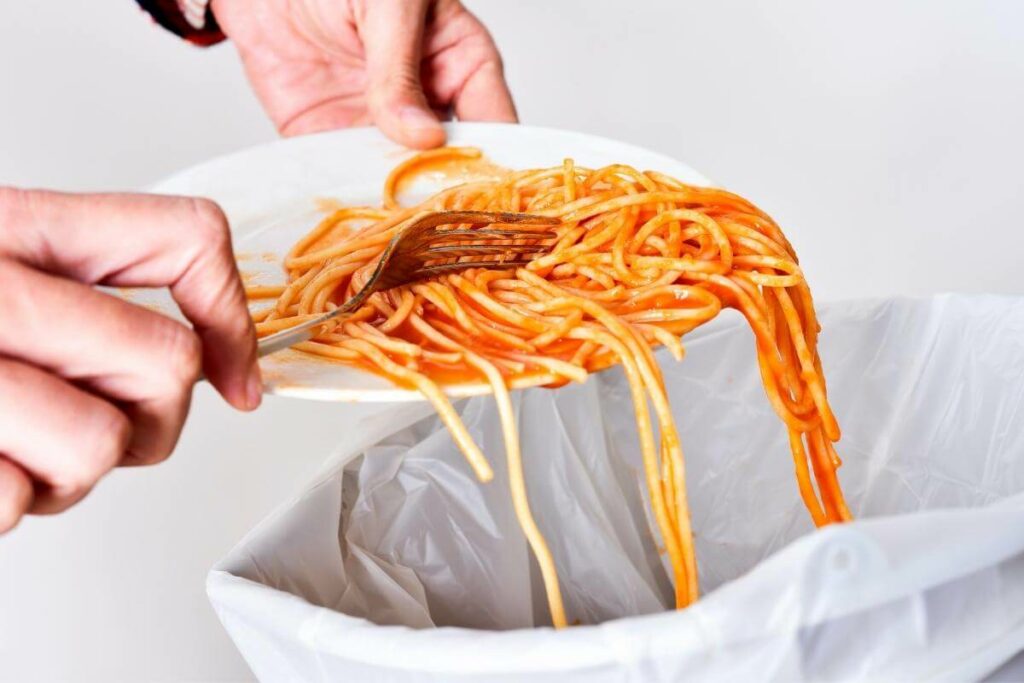
We already discussed why you don’t want too much meat finding its way into your compost soil, and the same goes for acidic products, including sauce.
With that said, it would take a lot of meat and acid to cause a huge problem with your compost pile, so as long as you keep the sauce to a minimum and you mix it up really good, dumping your leftovers straight from the plate shouldn’t be an issue.
Things to Avoid Adding to Your Compost Pile
Most of the items you should stray away from placing in your compost are pretty self-explanatory.
Things you wouldn’t want your food near or that can shouldn’t be added into your compost piles:
- Meat
- Fish Scraps
- Dairy products
- Fats and Oils
- Treated wood/sawdust
- Black Walnut Tree Debris
- unhealthy Plants
- Charcoal Ash
- Dog or Cat Waste
- Baked goods
- Acidic foods
Things that are Beneficial For Your Compost
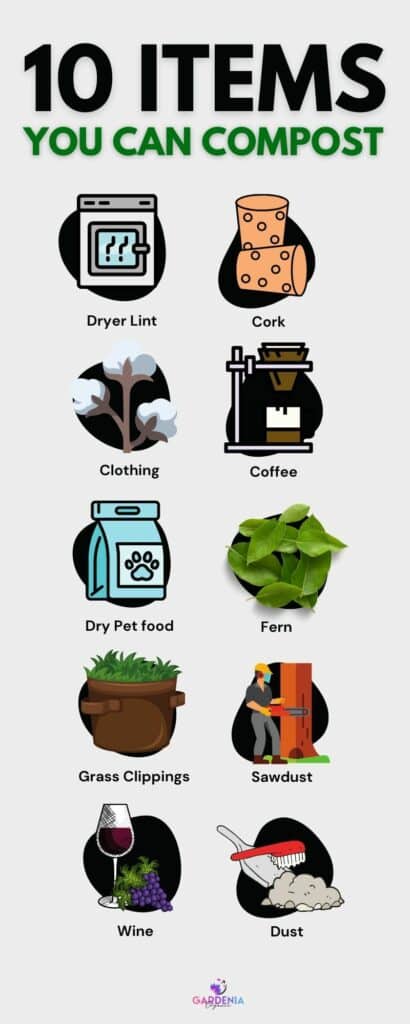
Here is a list of items that you can add to your compost alongside your pasta that will help provide the right nutrients and substance for an effective compost pile:
- Fruits and vegetables
- Eggshells
- Coffee grounds and filters
- Grass clippings
- Leaves
- Teabags
- Nutshells
- Houseplants
- Hay and straw
- Yard trimmings
- Sawdust
- Shredded newspaper
- Cardboard
- Paper
- Wood chips
How Long Does It Take for Pasta to Decompose in a Compost Pile
Unlike fruits and vegetables that are made up of mostly water and grains, pasta is a grain and takes longer to break down (as far as food products go).
Most compost piles, depending on their size, location, and maintenance, will take between 4-6 months to decompose fully.
If you are looking to speed things up, here are some things you can do to accelerate the process:
- Frequently turn your compost
- Layer a bunch of tree branches at the bottom
- Incorporate old compost into a new pile
- Add some nitrogen-rich materials
- Add in some easily digestible materials
- Use insulated bins
- Add worms into your compost
- Make your pile bigger
There is a learning curve when it comes to creating a good compost pile.
Keep at it, and you will soon be able to reap the rewards.
Summing Things Up
It is pretty safe for you to add your pasta, cooked or not, into your compost pile and can actually be pretty good for it.
However, you must be willing to put in the extra work needed to keep things going smoothly.
Also Useful
- Can You Compost Dryer Sheets? (13 Things You Can or Can’t Compost)
- The 4 Types Of Aerobic Composting Explained
- The Ideal Compost Greens to Browns Ratio
